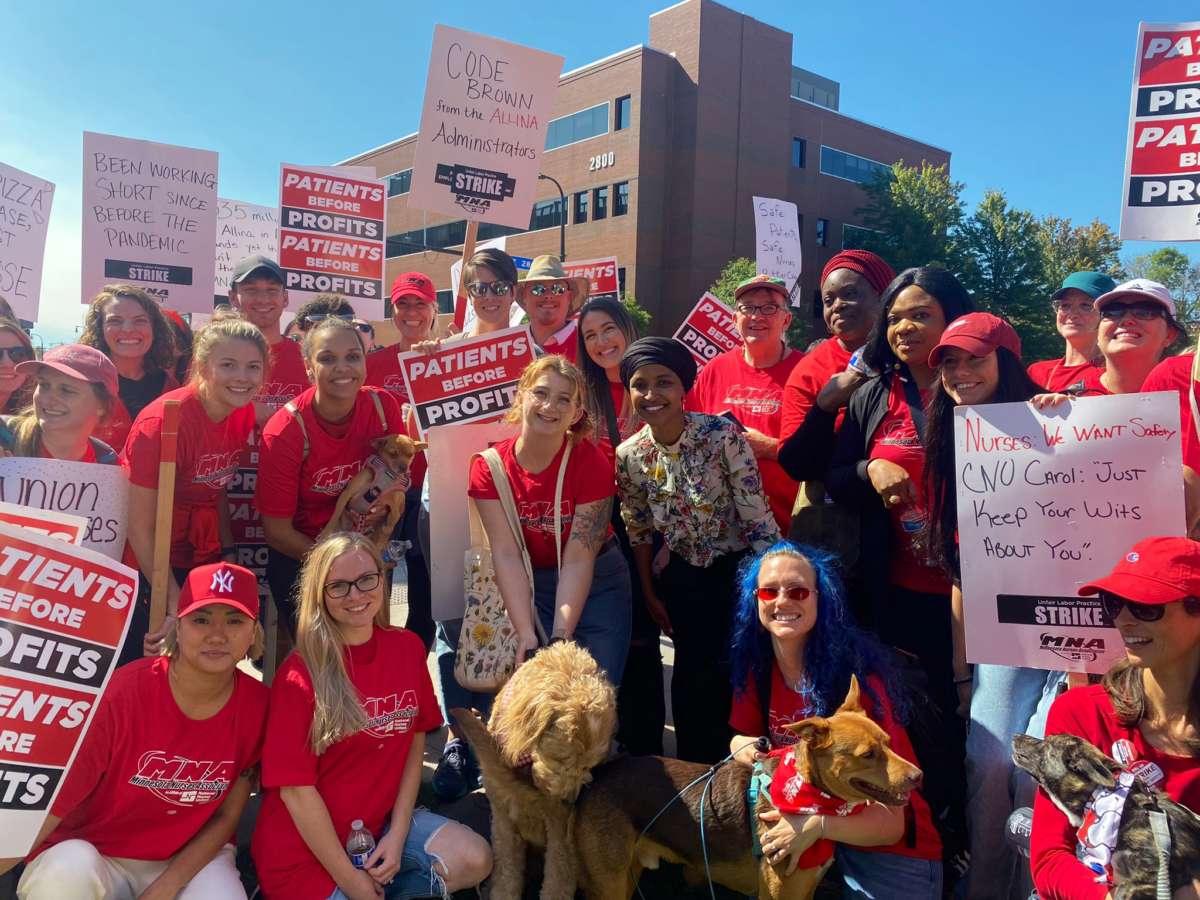On Monday, progressive Rep. Ilhan Omar (D) joined roughly 15,000 nurses waging the largest private sector nurses’ strike in U.S. history as the workers marched for better pay and safer working conditions in her home state of Minnesota.
Omar marched in solidarity with nurses in her district in Minneapolis and encouraged her followers on social media to join the workers’ picket line. “Overwhelmed by the passion and commitment of these nurses,” she wrote on Twitter.
Adam Ramer, Omar’s deputy campaign manager, added on Twitter that the lawmaker and her staff were “Fighting with [Minnesota nurses] as they strike for safer conditions & for hospital CEOs to put patients over profits.”
Minnesota nurses began a three-day strike on Monday after negotiating with hospital administrators for over five months. The nurses, represented by the Minnesota Nurses Association (MNA), say that severe understaffing and a lack of support from administrators has led to burnout as nurses struggle to provide adequate care to their patients.
The lawmaker has been supporting the nurses through their protests in recent months, and last month joined workers in an informational picket, or a picket line meant to inform the public about union members’ concerns, held by nurses at a Minneapolis hospital.
When nurses voted to authorize the strike last month, Omar wrote an op-ed in support of the union members, emphasizing the importance of hospital executives treating their employees with dignity for the sake of the patients in their care.
“It is unconscionable that hospital CEOs have refused to address” nurses’ concerns, Omar wrote. “When nurses are not given the resources and support they need, patient care suffers. Instead, they have fostered a system that puts profits over the health and safety of both nurses and patients.”
Nurses have been asking for 30 percent raises over the next three years, but hospital administrators have countered with raises of 10 to 12 percent over three years — which is lower than current inflationary rates, on average. Hospitals administrators pin the blame for the strike on the union, and had filed unfair labor practice charges ahead of the strike, some of which have already been thrown out by labor officials.
Omar said in her op-ed that issues of understaffing are due in large part to hospital administrators who refuse to provide better working conditions. “We don’t have a shortage of nurses; we have a shortage of dignified workplaces in our health care system,” she wrote. “Nurses are not equipped with the resources they need or deserve to do their jobs.”
Indeed, nurses say that they’ve faced stagnant wages or even wage cuts in recent years, as the industry has never quite recovered from the loss of thousands of health care workers who left the sector, died or were disabled due to COVID. This has led to a massive rise in demand for travel nurses, who travel to different cities or states to fill in for shortages and are paid a far higher rate than full-time staff.
But the increasing reliance on travel nursing is unsustainable, health care workers say; while travel nurses can temporarily ease shortages, core hospital nursing teams remain strained and now have to adjust to an increasingly transient staff and a workflow that may differ from their typical one. And, because travel nurses earn lucrative pay compared to regular nurses’ salaries, the practice could impede upon hospitals’ ability to recruit talented, full-time staff to care for their patients, workers say.


